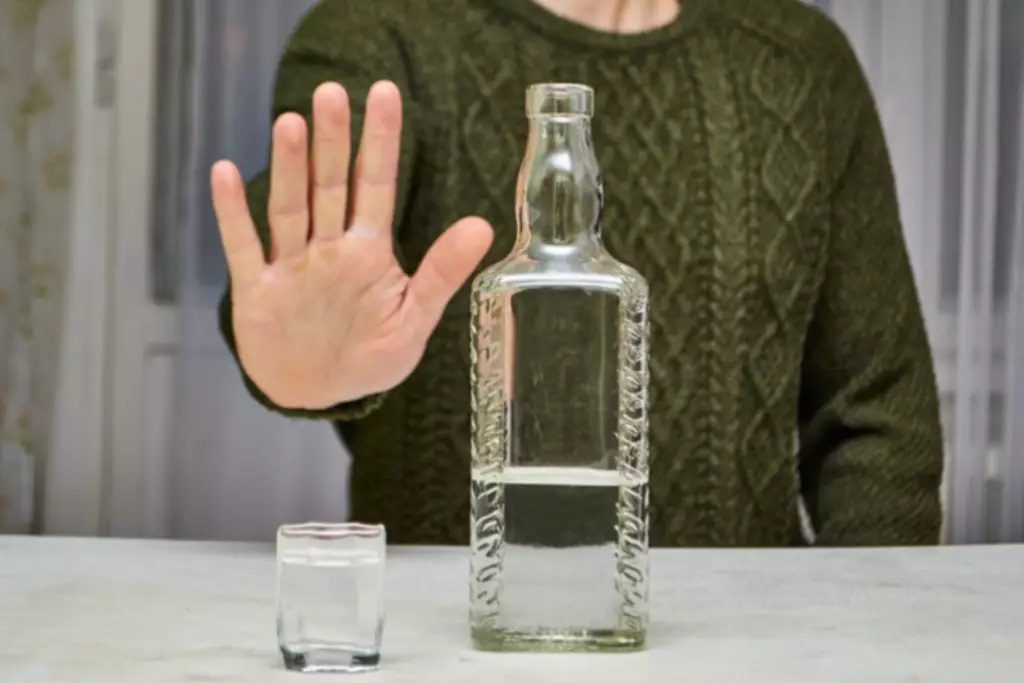Alcohol intolerance Symptoms & causes
Content
Even so, if you have a severe corn allergy, you may want to avoid corn-based spirits, most especially bourbon. Gin, whiskey, brandy, and some vodkas may also use corn as an ingredient or flavoring, so be sure to check the label. For its part, the European Food Safety Authority stated that distilled alcohol derived from corn is “probably https://ecosoberhouse.com/article/alcohol-allergies-symptoms-and-signs/ safe” for people with corn allergies. This is because the distillation process removes most of the corn protein that might cause a reaction. The type of yeast used to ferment many alcoholic beverages is known as brewer’s yeast. Some people may even have reactions to grapes or corns used to make wine and distilled liquors.
The enzyme diamine oxidase breaks down histamine that people consume from foods and beverages. If people do not produce enough of this enzyme, they may not break down histamine efficiently, which may lead to intolerance symptoms. Symptoms of alcohol intolerance can make a person feel uncomfortable. In contrast, an alcohol allergy could become life threatening. An alcohol allergy and alcohol intolerance are two different conditions.
Ethanol-induced urticaria: a case report
With this condition, you have an inactive or less-active form of the chemical that breaks down alcohol in your body. Many people think that alcohol allergy and alcohol intolerance are the same thing, but they’re not. In fact, only alcohol intolerance causes the alcohol flush reaction. When people search for alcohol allergy, most people actually mean alcohol intolerance, and this is what we’re discussing today.

An alcohol allergy is a rare allergy that causes a person’s immune system to react in a combative way to alcohol. There are more options available now more than ever if you’re looking for alcohol that is gluten free. Some vodkas that are triple distilled are safe for gluten intolerance and numerous beer companies are releasing gluten-free beer. By Victoria Groce
Victoria Groce is a medical writer living with celiac disease who specializes in writing about dietary management of food allergies. It is unclear if distilled alcohol made from corn is safe for people with corn allergies.
Is there an alcohol intolerance cure?
If you have an extreme sulfite sensitivity or are at risk of anaphylaxis, you will need to carry an EpiPen to self-inject yourself with epinephrine (adrenaline) in the event of an emergency. A group of sulfur-containing compounds known as sulfites occurs naturally in wine and beer. Some vintners add more sulfites to wines because they act as preservatives. For severe allergies, avoid the allergen completely, and always carry your EpiPen with you in case of an emergency. The doctor may refer the person to an allergy specialist for further testing and treatment. Anaphylaxis is a life threatening condition that involves a series of symptoms, such as a rash, low pulse, and shock.
- If you develop symptoms after drinking alcohol, make an appointment with your doctor.
- This may be harmful because it can mask severe symptoms that could be brewing like shortness of breath.
- But it’s possible your hangover is a symptom of something else.
- If you have any unpleasant symptoms after drinking alcohol, see your healthcare provider.
- Even in people who don’t have alcohol intolerance, a build of acetaldehyde in your body is what causes you to feel sick when you’ve had too much alcohol.
The main treatment of both conditions is avoiding alcohol or the ingredients that trigger the allergy. For allergic reactions, taking an antihistamine like Benadryl for a mild to moderate reaction can help. For individuals carrying gene variations that impair alcohol metabolism, the best way to prevent alcohol flush reaction is to avoid drinking or to limit alcohol intake. In fact, hindering alcohol flushing elevates the risk of cancer by enabling higher levels of alcohol consumption and thus higher acetaldehyde production. People who take certain medications that alter alcohol metabolism can also experience the alcohol flush reaction.
What Is an Alcohol Allergy?
An alcohol allergy or intolerance is caused by the body’s inability to break down alcohol. Given that alcohol allergies are rare, the more likely culprits are the grains sulphites, and preservatives found in many wines, beers, and liquors. A simple way to determine if you have an alcohol allergy is to get tested. A skin-based prick test (much like the one for other allergens) is administered and the skins reaction is the key to determining the severity or existence of the allergy. If you have what seems like an allergic reaction whenever you drink alcohol, you likely have alcohol intolerance. That doesn’t mean you’re allergic to alcohol; instead it means you’re allergic to one of the ingredients in your beverage of choice.
- Toketemu has been multimedia storyteller for the last four years.
- However, the most common symptoms to look out for are your skin flushing and feeling sick whenever you consume alcohol.
- Alcoholic beverages are made from complex mixtures of grains, chemicals, and preservatives that your body needs to break down.
- Often, people with alcohol intolerance drink less, because the symptoms they experience are so unpleasant.
It is estimated that as many as 50 million Americans may suffer from some type of allergy. In rare cases, allergies can lead to anaphylactic shock and death. If you or a loved one are dealing with allergy symptoms, see your Baptist Health physician for consultation and treatment. It’s also found in many foods and beverages, especially fermented products. For example, aged cheese, smoked meats, sauerkraut, wine, and beer tend to be high in histamines. If you have this variant, it causes your body to produce less active ALDH2.
If a person is allergic to a particular ingredient found in some drinks, they could switch to drinks that do not contain it. There are several ways for a doctor to diagnose an alcohol allergy or intolerance, including the approaches below. Alcohol allergy symptoms can range from mild, such as an itchy mouth or eyes, to severe, including vomiting or anaphylaxis. We will also look at what causes alcohol allergies and review the differences between alcohol allergy and intolerance. Just as treatment for an alcohol allergy requires total abstinence, recovery from an alcohol use disorder calls for the same. Talk with a treatment provider today to begin your road to recovery.

When you are in control, your night can remain fun rather than hazy. Knowing when to say ‘enough is enough’ is the key to enjoying your night out not having any regrets. Never accept drinks from strangers and always make sure you watch your bartender make your drinks in a crowded bar. There is little evidence that distilled spirits made from corn, including bourbon, pose a risk to people with corn allergies or intolerance. People with grape allergies need to avoid wine and distilled spirits made with grapes, including cognac, ouzo, and vermouth.
How is alcohol intolerance diagnosed?
People with celiac disease, non-celiac gluten sensitivity, or a wheat allergy may need to steer clear of conventional beer. Things get more complicated when it comes to distilled alcohol. Gin, vodka, and whiskey are all made from gluten-containing grains such as wheat, rye, and barley. Even so, the American Dietetic Association (ADA) considers these distilled spirits safe for people with celiac disease.
If you start to experience swelling while drinking, be warned. Due again to the reaction from histamines, it’s not uncommon to experience swelling (think Will Smith in Hitch) when you have an alcohol intolerance. If you have alcohol intolerance, drinking even tiny amounts of alcohol can cause you to flush, usually within 20 to 30 minutes of drinking.
Screening for acetaldehyde dehydrogenase 2 genotype in alcohol-induced asthma by using the ethanol patch test
The only way to prevent these uncomfortable reactions is to avoid alcohol. No, alcohol intolerance is not the same as being intoxicated or drunk. Alcohol intolerance doesn’t mean you become drunk faster or after drinking less alcohol. And the condition does not increase your blood alcohol level, either.
How do you treat an alcohol allergy reaction?
The only way to avoid alcohol intolerance symptoms or an allergic reaction is to avoid alcohol or the particular beverage or ingredients that cause the problem. For a minor reaction, over-the-counter or prescription antihistamines might help reduce symptoms, such as itching or hives.
If you have a pattern of suddenly feeling very sick after consuming alcohol, you may have developed sudden onset alcohol intolerance. Your body may also start to reject alcohol later in life because as you age and your body changes, the way you respond to alcohol can also change. ☝️Alcohol intolerance vomiting☝️ Alcohol intolerance is not the only cause of vomiting. If you drink too much alcohol, acetaldehyde is a toxic substance can cause vomiting in healthy (but intoxicated) people too.
So raise a glass to health and happiness and have a good night. Some of the key tips discussed are ‘common sense’ whether you have a food allergy or not. Always know your limit and never play with the line between social drinking over consumption.
- Severe flushing can be very uncomfortable, but it is not dangerous.
- However, in people with an alcohol allergy, the system mistakenly produces antibodies to attack alcohol following exposure to the substance, triggering various symptoms.
- The best way to prevent an adverse reaction is to avoid any item containing alcohol.
- The best way to live with this condition is to avoid alcohol as much as possible.


